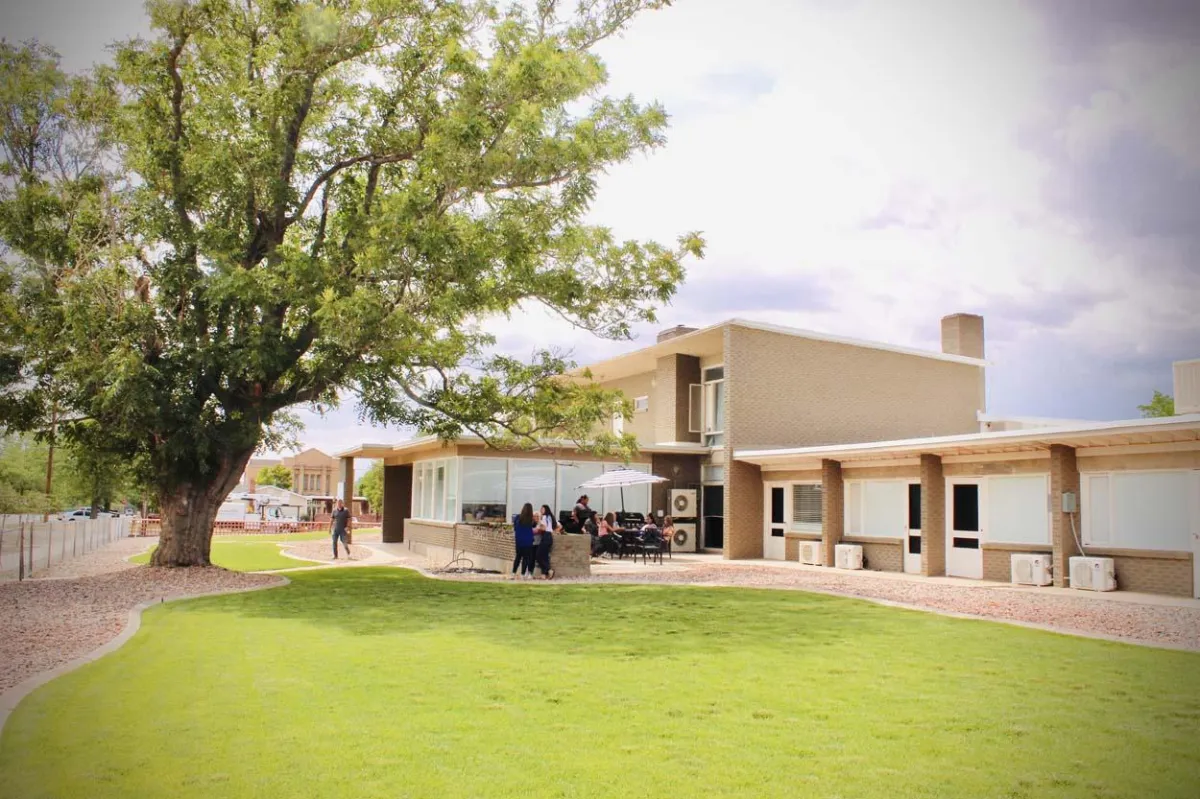Let's help you determine which type of school is best for your daughter.
Articles & Resources

What to Expect from a Center for Transitional Living: A Comprehensive Guide
A Center for Transitional Living offers essential support to individuals preparing for a new phase of life. Whether it’s a teen transitioning from residential treatment or a young adult aging out of foster care, these programs provide structure, life skills, and career development to help participants move toward independent living. With practical tools and a supportive environment, residents can build the confidence needed to thrive in the future.
This guide will walk you through what to expect from a transitional living program and the essential elements that contribute to a successful experience.

Who Benefits from Transitional Living Centers?
Transitional living programs serve individuals who need extra support as they prepare to live independently. Common groups that benefit include:
Teens or young adults transitioning from therapeutic or residential programs
Youth aging out of foster care and preparing for adulthood
Young adults seeking additional life skills or guidance as they move toward independence
These programs help participants build a foundation of practical skills, accountability, and independence as they take their next steps in life.

Key Features of a Transitional Living Program
Each transitional living center may have a unique focus, but most share some common elements designed to empower residents and guide them toward self-sufficiency.
Structured Daily Routine
Consistency is a key component of transitional living programs. Daily schedules with set times for meals, activities, and responsibilities help residents develop good habits and time management skills. This structure provides a sense of stability and prepares participants to manage their own routines after leaving the program.
Education and Career Development
Preparing for educational or career success is a major focus of transitional living centers. Programs offer:
Academic support for high school diplomas, GEDs, or college preparation
Career counseling and job-readiness training, including resume building and interview practice
Opportunities for internships or part-time work to gain real-world experience
Many programs also partner with local businesses to help residents explore potential career paths and develop professional networks.

Life Skills Training
Living independently requires practical knowledge that isn’t always taught in traditional school settings. Transitional living programs offer life skills workshops that cover essential topics such as:
Budgeting and financial literacy
Meal planning and cooking
Household management and cleaning routines
Transportation planning, including public transit navigation or getting a driver’s license
These skills help participants feel more confident in managing their personal responsibilities and living independently.
Independent Living Practice
To ensure a smooth transition, many programs provide opportunities for semi-independent living. Residents take on increasing responsibilities—such as managing their budgets or schedules—while still having access to staff for support and advice. This gradual transition allows participants to develop confidence in their ability to live independently.
Peer Support and Community Building
Transitional living programs foster a sense of community through group activities and shared living spaces. Participants form connections with others who share similar goals and experiences, building a support network that can last beyond the program. Developing interpersonal skills in a positive environment also helps participants navigate future personal and professional relationships.

Family Involvement
Family involvement can play a significant role in a successful transition, particularly for younger participants. Many programs encourage family engagement by offering workshops, visits, or events to help families learn how to support their loved ones during this time. A strong support system ensures participants have a reliable network when they leave the program.
Program Length and Phases
The length of a transitional living program can vary based on the participant’s needs. Some programs last a few months, while others offer long-term support for up to two years. Typically, residents move through phases as they gain more independence:
Orientation Phase – Residents learn about the program’s structure and set personal goals.
Skill-Building Phase – Participants develop essential life skills and explore educational or career opportunities.
Independence Phase – Residents manage their own schedules and budgets with limited staff supervision.
Graduation and Aftercare – Participants transition out of the program, often with access to alumni networks or follow-up services for continued support.
What to Look for in a Transitional Living Program
If you’re considering a transitional living program, it’s important to find one that aligns with your goals. Here are a few things to consider:
Specialized Support: Does the program meet your specific needs, such as academic help or job training?
Structured Environment: Does the program offer a routine that promotes personal growth?
Qualified Staff: Are the mentors and instructors experienced in guiding participants toward independence?
Family Involvement: Does the program encourage family engagement, if applicable?
Aftercare Services: Are there alumni networks or follow-up services to support participants after graduation?
The Impact of Transitional Living Programs
Transitional living centers offer more than just a temporary home—they provide the skills, resources, and experience needed to build a stable, independent life. Participants leave with a clearer sense of direction, improved confidence, and the tools necessary to succeed in the future.
Studies have shown that individuals who participate in structured transitional programs are more likely to achieve their educational and career goals and maintain long-term independence.
Conclusion: Building a Bridge to Independence

Transitional living programs are designed to help participants move forward with confidence by providing the structure, skills, and experience they need to thrive. Whether a young adult is preparing for their first job or a teen is transitioning from residential care, these programs offer the support necessary for lasting success.
If you or a loved one is looking for guidance during an important life transition, a Center for Transitional Living could provide the foundation needed for a successful future. With the right resources and environment, participants can build the skills they need to embrace independence and create a brighter tomorrow.
